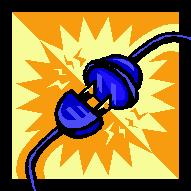Keyword research may be the single most important factor contributing to your online marketing and SEO success. The keywords you select will determine who can and can’t see your site for any given search. Incorporating the right keywords into your content helps increase your online brand presence, drives targeted traffic to your site, affects what search phrases your site ranks for and more. Missing out on important keywords, or putting the wrong keywords on the wrong pages, means missing out on potential clients and customers. If your site isn’t ranking for the right keyword, you might as well be invisible online.
Sites need to choose keywords on a page-by-page basis based on two things. First and foremost, you have to choose keywords that accurately reflect the content on the page. Search engines rank individual pages, not sites as a whole. Secondly, you have to choose keywords based on the intent of your target audience. That is where the buying cycle comes into play.
When a searcher is at the beginning of their buying cycle, they are usually in research mode. They’re just “shopping around,” bouncing from site to site to gather information from numerous sources, which they will use to influence their future purchase. For instance, first time parents might spend a couple weeks researching baby cribs for their new nursery. Who are the big crib manufacturers? How much do their cribs cost? What kind of reviews have their products received? What kind of crib is best for newborns? First time parents have a lot of questions, so they turn to friends, family and the search engines for answers. They might use search phrases like “baby crib styles,” “top rated baby cribs, “nursery furniture” or “nursery design ideas” to get them started. These are informational searches.
Depending on the kind of information someone is looking for, they may or may not be looking to make a quick transition from research to buying. For instance, someone scrolling through Yelp reviews, trying to decide where to eat lunch that day is going to make a quick decision. Someone looking to make a big purchase (like cars, electronics, furniture, etc) might spend more time researching their options.
As consumers move through their buying cycle, then tend to search using more long-tail keywords. Instead of searching for “baby crib,” the first time parents search for “portable folding crib bedding set.” These searchers have a better idea of what they are looking for and are searching for a specific thing. They might search for a company or product by name or include buzz words like “buy” or “order” in their search phrase. As consumers near the end of their buying cycle, your chance for converting them goes up. They are looking to make a final decision.
So what does this all have to do with your keyword research?
You have to decide what kind of visitors you want finding your site, and then put yourself in their
mindset when conducting your keyword research. How would you search to find your site? No matter where they are in their buying cycle, a visitor to your site has the potential to convert. You want to make sure they land on the right page for where they are.For instance, let’s say you own a jewelry store and are looking to build up your engagement ring business. Someone at the beginning of their buying cycle might search for “engagement ring styles.” This person isn’t ready to buy yet; they don’t even know what kind of ring they want. However, just because they aren’t ready to buy, that doesn’t mean you don’t want them finding your site. If you can position your site as a one-stop-source where they can get all the information they want AND make a purchase, you have a better chance of getting them to convert.
However, having them land on your homepage doesn’t answer their search. Your homepage shouldn’t be targeting “engagement ring styles,” but “engagement ring store” instead. That better reflects the content of your homepage. Visitors to your site want to find the information they need quickly, otherwise they’ll leave. If your keywords don’t match up with the content, they may feel like they’ve been tricked into visiting your site.
Instead, create a page of content that focuses on “engagement ring styles” and other related keywords; build an engagement ring guide for soon-to-be fiancés. You can talk about stone cuts, setting, band types and so forth. You want to position your company as the expert in engagement ring styles, there to make the process of selecting the perfect ring much easier. To keep that visitor more involved with your site, you can link from the ring guide to various internal pages of engagement rings you sell, so they can see the finished product and possibly convert.
You want your site to include a variety of keywords that will match up with searches no matter where someone is in their buying cycle. Obviously you want to target those at the end of their buying cycle, since they are more likely to convert. But you shouldn’t forget about those just looking for information. You don’t know how quickly they are hoping to make a decision and you have the opportunity to leave a good impression on them. They may bounce around to a few sites, but ultimately settle back on yours because you were the most helpful throughout the whole process.
Nick Stamoulis Site Pro News http://www.sitepronews.com/category/articles/keywords-articles/

No comments:
Post a Comment